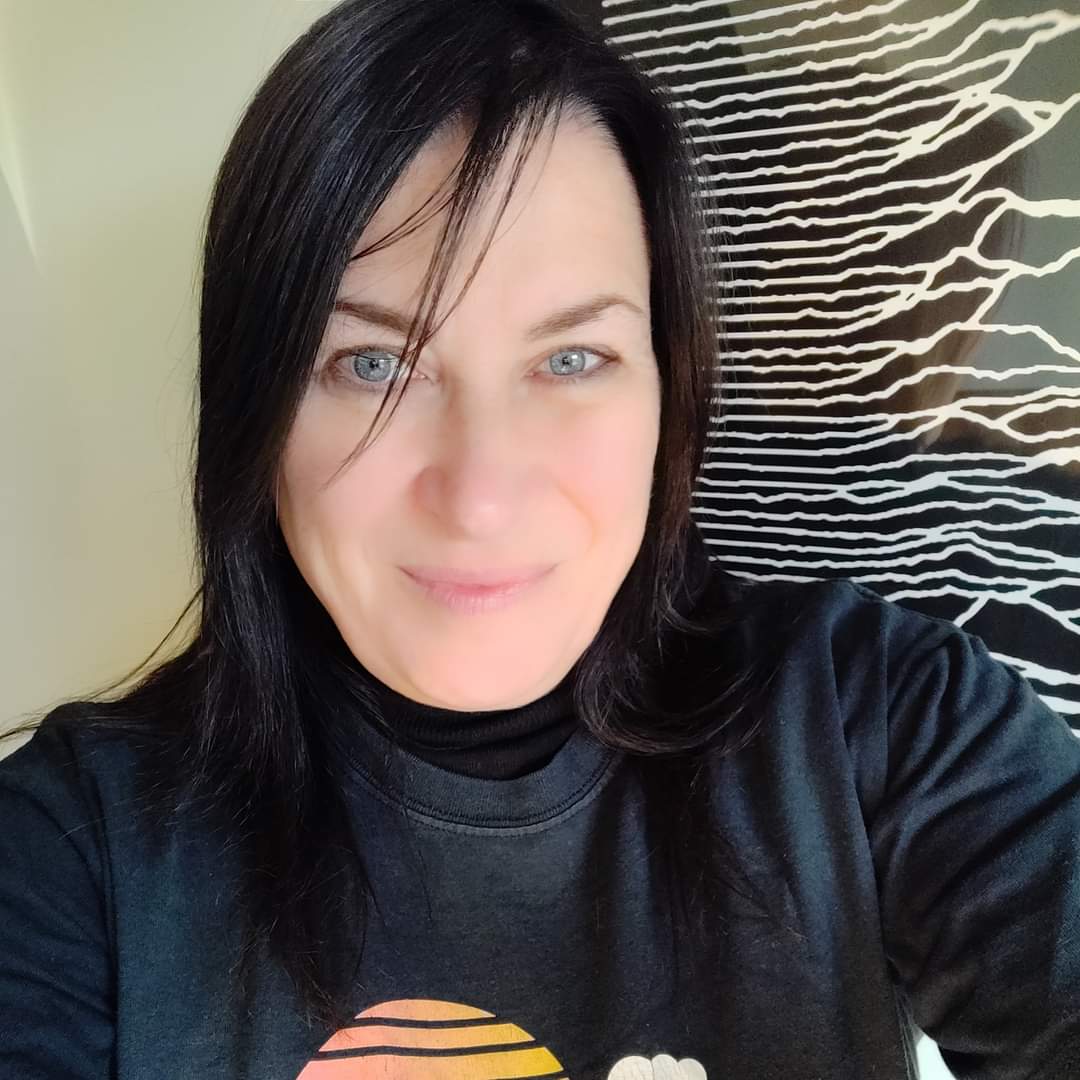
 Hello, our names are Anna and Jo.
Hello, our names are Anna and Jo.
What do you like best about where you live?
What would you like it to look like in 10 years’ time?
These are questions that we don’t often ask ourselves, but Conversationalists are about to do exactly that in Wakefield’s ‘Big Conversation’.
It is well-recognised that the pandemic brought about much complexity and uncertainty into our personal and professional lives; however, it also brought about opportunities for a great deal of understanding of the benefits of working in a different way.
Some of the greatest examples of these are where we harnessed the power of our communities by working together with individuals and third sector organisations to co-design services that had a positive impact. By working with trusted individuals in our local areas, and listening and responding to people’s views and beliefs, meant we had greater uptake of the Covid vaccine in those people who would not normally have gone to a vaccination centre to be vaccinated.
So, in the wake of the pandemic, and in response to a desire to work in a more participatory way, Wakefield Council, together with local partners, is embarking on an ambitious Big Conversation with its communities. This is explicitly a move away from consultation-based approaches and is intended to help create the basis for the council’s long-term strategies and ongoing, open-ended engagement with local communities in the future.
Even the team that has planning and oversight responsibilities for the Big Conversation is working in a different way. It is a multidisciplinary team working to the model of distributed leadership; this is where team members are given the autonomy to make key decisions in their area of skills and responsibility providing empowerment and ownership of their work.
To prepare for the Big Conversation we are training 100 ‘Conversationalists’ in appreciative inquiry, an approach that emphasises identifying strengths and assets and imagining new ways of doing things. The Conversationalists are a mix of council staff from all directorates, elected members, partner organisations such as Wakefield CCG, Healthwatch Wakefield, and Wakefield District Housing; and local people from the communities themselves, including a focus on recruiting children and young people. The recruitment of people from a diverse range of backgrounds means that we are in the best position to bring our different lived experiences to the planning and design of the conversations and allows greater sharing of knowledge and learning.
The Conversationalists will hold over 1200 conversations over the summer with individuals that either live, work, or study in Wakefield and district. They will ask two questions to encourage people to think about the assets in their own defined place, alongside their aspirations and ambitions for the next 10 years.
One of the challenges for this approach will be ensuring that the conversations reach deeply into the diversity of different places and communities within Wakefield District. For this, partnerships will be crucial – not only with statutory organisations but the local third sector too.

Around half of the recruited Conversationalists do not have their own extensive links or networks within local communities, so the Council is directly partnering with third sector organisations to play a vital connecting role. They will point Conversationalists toward less-heard-from groups and people who might particularly benefit from, or be helpful for, the conversations.
The Conversationalists will capture rich insight from their conversations which will be analysed and evaluated, not only to inform future strategies and policies across Wakefield Place, but also to provide a fast feedback loop to the population which will inform in real time how many conversations have been held, emerging themes, stories from people involved, and most importantly things that have been done because of the conversations. All of this will be relayed back in various forms such as video diaries, blogs, storytelling, and art; and will be communicated via newsletters, social media such as Tik Tok and Instagram, and presenting to local community groups.
In addition to gaining insight from respondents, we will also be capturing information from the Conversationalists themselves about their experiences of working in this way. This will help to inform organisational development and recruitment plans for the Council and potentially also other partners.
We are working in a reflexive way where the Conversationalists co-design how we have conversations in response to their experiences over time; and have set up Conversationalist peer groups where we share learning and ideas as well as providing a place for reflection and wellbeing.
The use of appreciative inquiry can be used in many different settings through health and social care, bringing a different focus to the way in which we have conversations with people. The ambition is that the learning and insight gained from the Big Conversation will lead to a different way in which we work across Wakefield as a place.
Training for Wakefield’s Big Conversation is underway now, with conversations taking place from 9th May until the end of August. A website is due to be launched soon which will be kept up to date with stories and information about the Big Conversation.

Lessons learned
Allow partners to play to their strengths
Wakefield’s approach to the Big Conversation sees partners taking on roles that fit their unique capacities and assets. Residents themselves are most likely to have honest, trusting conversations within their communities. Third sector partners have experience of innovative approaches to engagement, as well as broad networks and diverse relationships. The Council is best placed to coordinate activities, supply resources and training, and ensure that community views are acted upon.
Shared goals help to motivate partnerships
Wakefield’s ambitious plans and collaborations are made possible by shared commitment to a set of objectives and values, including the aim of building upon the experience of collaborations during the pandemic. These goals are not detailed – partly because broader principles maximise the inclusivity of the process, and partly because the purpose of the Big Conversation is to develop the detail through community coproduction.
Learning, iteration, and network development do not have to managed ‘in-house’
There may be an instinctive preference to ‘own’ the reflections and learnings from community engagement efforts. The Wakefield example suggests that this is not always the right approach. A council’s partners may be more experienced in important ways, and a great source of support as the council seeks to improve and iterate on its model.
Take a look at our partner newsletter, Community Newsletter 2 - 1, and for more information or questions, please email thebigconversation@wakefield.gov.uk.
Keep an eye out for the website www.bigconversationwakefield.co.uk which is due to go live soon.
Thank you for reading, have a good weekend.
Anna and Jo
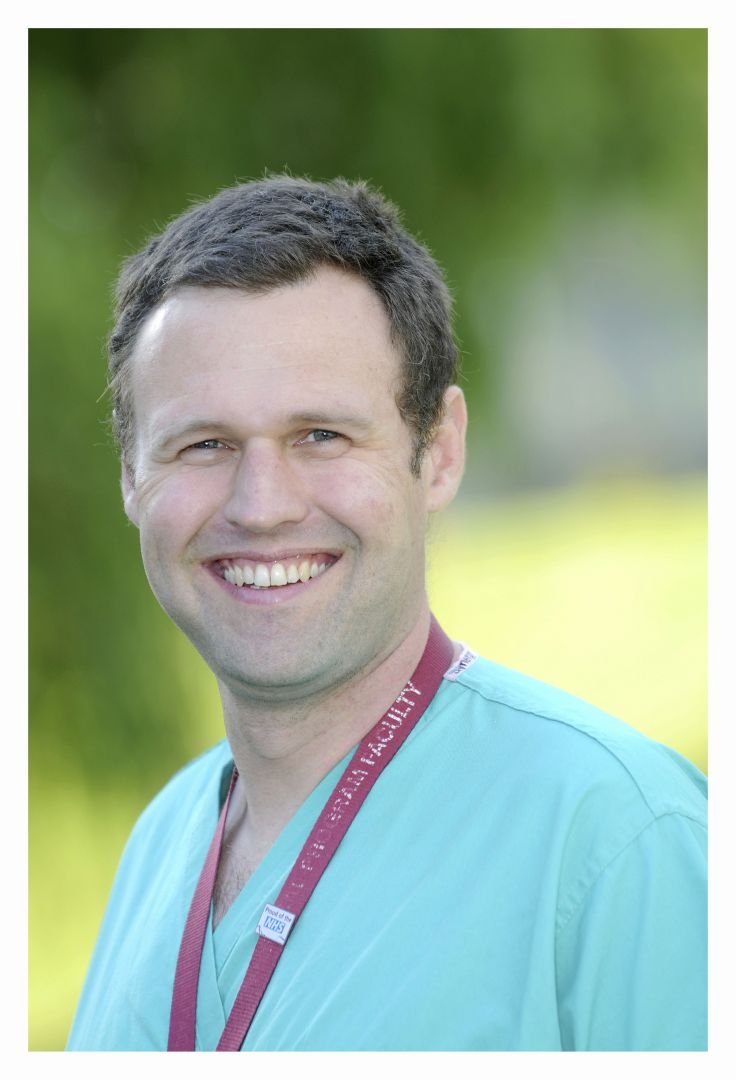 Hello! My name’s Frank.
Hello! My name’s Frank.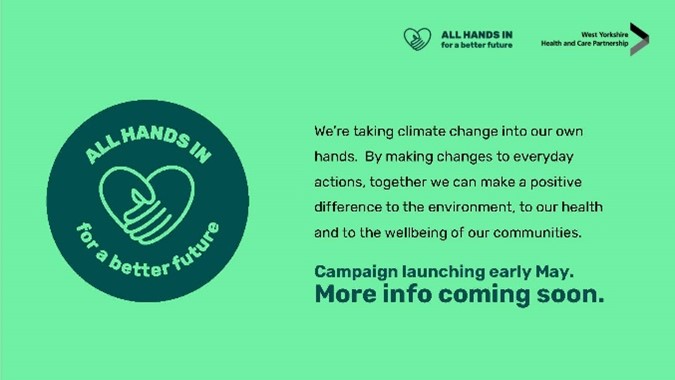 Those in the NHS might also be interested to hear about our Green Plan which was approved by the Partnership Board on 1 March. You can find details of how we all need to move the NHS towards zero carbon here: Resources :: West Yorkshire Health and Care Partnership (wypartnership.co.uk)
Those in the NHS might also be interested to hear about our Green Plan which was approved by the Partnership Board on 1 March. You can find details of how we all need to move the NHS towards zero carbon here: Resources :: West Yorkshire Health and Care Partnership (wypartnership.co.uk)





 We held another packed one-hour training session to enable more healthcare professionals to make referrals to the NHS Low Calorie Diet Programme being piloted in West Yorkshire.
We held another packed one-hour training session to enable more healthcare professionals to make referrals to the NHS Low Calorie Diet Programme being piloted in West Yorkshire.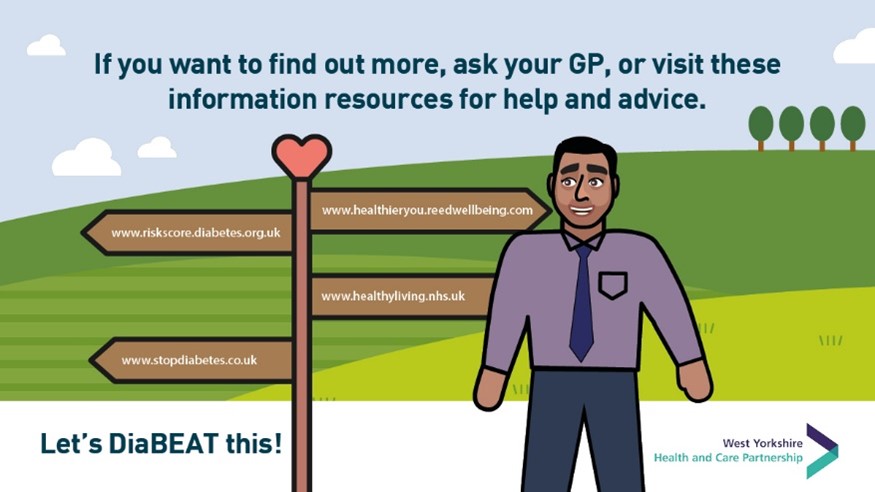 During the first wave of the pandemic, the 12-month timeframe for an eligible blood result to access the NHS Diabetes Prevention Programme (NDPP) was temporarily extended to 24 months.
During the first wave of the pandemic, the 12-month timeframe for an eligible blood result to access the NHS Diabetes Prevention Programme (NDPP) was temporarily extended to 24 months. Parents and carers of children and young people with suspected or diagnosed asthma are invited to complete a
Parents and carers of children and young people with suspected or diagnosed asthma are invited to complete a  We are delighted to confirm the appointment of three of the four independent non-executive members (designates) to the NHS West Yorkshire Integrated Care Board (ICB). This is subject to Parliament confirming the statutory responsibilities of ICBs as anticipated from July 2022. The appointments followed an open and transparent recruitment process which started in December last year and concluded in March this year and involved stakeholder panels and interviews with representatives from our Partnership and experts in equality, diversity, and inclusion.
We are delighted to confirm the appointment of three of the four independent non-executive members (designates) to the NHS West Yorkshire Integrated Care Board (ICB). This is subject to Parliament confirming the statutory responsibilities of ICBs as anticipated from July 2022. The appointments followed an open and transparent recruitment process which started in December last year and concluded in March this year and involved stakeholder panels and interviews with representatives from our Partnership and experts in equality, diversity, and inclusion. Leeds Teaching Hospitals NHS Trust has launched an ambitious vision placing Leeds at the global forefront of cancer research. Launched online in partnership with the University of Leeds, the Leeds Cancer Research Centre is a new venture bringing together experts from across a range of disciplines. These include:
Leeds Teaching Hospitals NHS Trust has launched an ambitious vision placing Leeds at the global forefront of cancer research. Launched online in partnership with the University of Leeds, the Leeds Cancer Research Centre is a new venture bringing together experts from across a range of disciplines. These include:
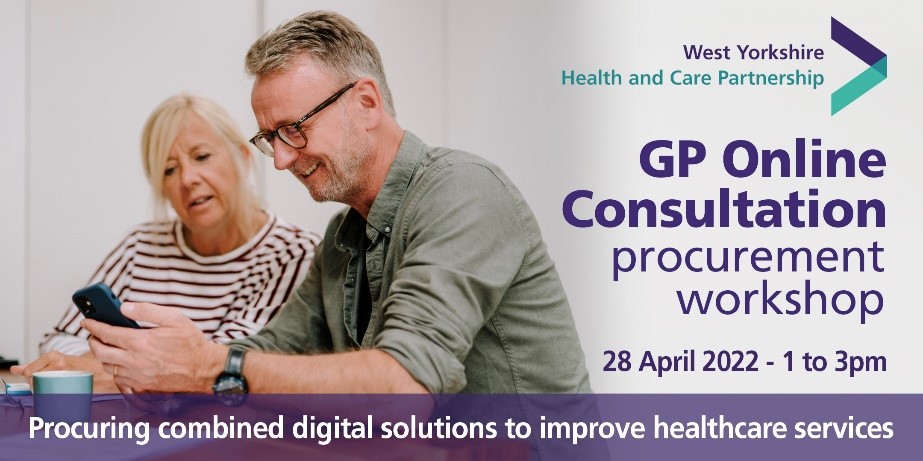 We are looking for clinical and non-clinical colleagues from GP practices and primary care networks to join a GP online consultation re-procurement workshop on Thursday 28 April 2022 from 1pm to 3pm.
We are looking for clinical and non-clinical colleagues from GP practices and primary care networks to join a GP online consultation re-procurement workshop on Thursday 28 April 2022 from 1pm to 3pm.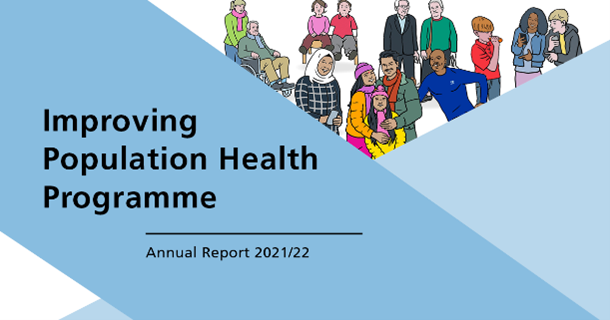 Don’t forget to have a look at the Improving Population Health Programme’s second
Don’t forget to have a look at the Improving Population Health Programme’s second